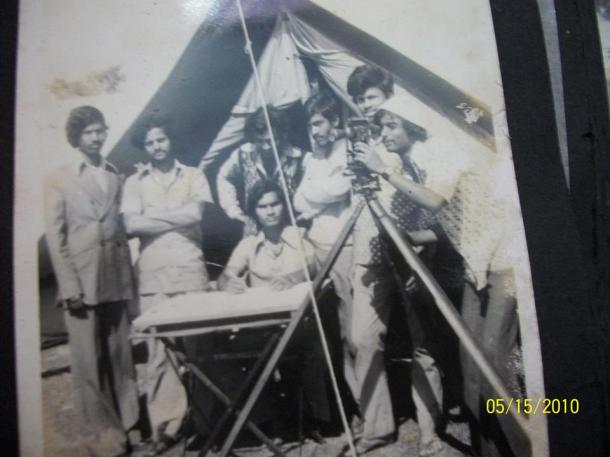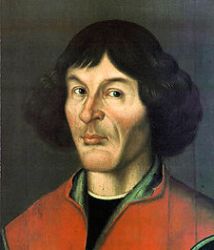কুর’আন থেকে ৪০ টি দু’আ
#১
رَبَّنَا تَقَبَّلْ مِنَّا إِنَّكَ أَنتَ السَّمِيعُ الْعَلِيمُ
‘Rabbana taqabbal minna innaka antas Sameeaul Aleem’
Our Lord! Accept (this service) from us: For Thou art the All-Hearing, the All-knowing [2:127]
পরওয়ারদেগার! আমাদের থেকে কবুল কর। নিশ্চয়ই তুমি শ্রবণকারী, সর্বজ্ঞ। (২: ১২৭)
#২
رَبَّنَا وَاجْعَلْنَا مُسْلِمَيْنِ لَكَ وَمِن ذُرِّيَّتِنَا أُمَّةً مُّسْلِمَةً لَّكَ وَأَرِنَا مَنَاسِكَنَا وَتُبْ عَلَيْنَآ إِنَّكَ أَنتَ التَّوَّابُ الرَّحِيمُ
‘Rabbana wa-j’alna Muslimayni laka ma min Dhurriyatina ‘Ummatan Muslimatan laka wa ‘Arina Manasikana wa tub ‘alayna ‘innaka ‘antat-Tawwabu-Raheem’
Our Lord! Make of us Muslims, bowing to Thy (Will), and of our progeny a people Muslim, bowing to Thy (will); and show us our place for the celebration of (due) rites; and turn unto us (in Mercy); for Thou art the Oft-Returning, Most Merciful [2:128]
পরওয়ারদেগার! আমাদের উভয়কে তোমার আজ্ঞাবহ কর এবং আমাদের বংশধর থেকেও একটি অনুগত দল সৃষ্টি কর, আমাদের হজ্বের রীতিনীতি বলে দাও এবং আমাদের ক্ষমা কর। নিশ্চয় তুমি তওবা কবুলকারী, অতিশয় দয়ালু। (২: ১২৮)
#৩
رَبَّنَا آتِنَا فِي الدُّنْيَا حَسَنَةً وَفِي الآخِرَةِ حَسَنَةً وَقِنَا عَذَابَ النَّارِ
‘Rabbana atina fid-dunya hasanatan wa fil ‘akhirati hasanatan waqina adhaban-nar’
Our Lord! Grant us good in this world and good in the hereafter, and save us from the chastisement of the fire [2:201]
হে পরওয়ারদেগার! আমাদিগকে দুনয়াতেও কল্যাণ দান করো এবং আখেরাতেও কল্যাণ দান করো এবং আমাদিগকে দোযখের আযাব থেকে রক্ষা করো। (২:২০১)
#৪
رَبَّنَا أَفْرِغْ عَلَيْنَا صَبْرًا وَثَبِّتْ أَقْدَامَنَا وَانصُرْنَا عَلَى الْقَوْمِ الْكَافِرِينَ
Rabbana afrigh ‘alayna sabran wa thabbit aqdamana wansurna ‘alal-qawmil-kafirin
Our Lord! Bestow on us endurance, make our foothold sure, and give us help against the
disbelieving folk [2:250]
হে আমাদের পালনকর্তা, আমাদের মনে ধৈর্য্য সৃষ্টি করে দাও এবং আমাদেরকে দৃঢ়পদ রাখ-আর আমাদের সাহায্য কর সে কাফের জাতির বিরুদ্ধে। (২: ২৫০)
#৫
رَبَّنَا لاَ تُؤَاخِذْنَا إِن نَّسِينَا أَوْ أَخْطَأْنَا
Rabbana la tu’akhidhna in-nasina aw akhta’na
Our Lord! Condemn us not if we forget or fall into error [2:286]
হে আমাদের পালনকর্তা, যদি আমরা ভুলে যাই কিংবা ভুল করি, তবে আমাদেরকে অপরাধী করো না। (২: ২৮৬)
#৬
رَبَّنَا وَلاَ تَحْمِلْ عَلَيْنَا إِصْرًا كَمَا حَمَلْتَهُ عَلَى الَّذِينَ مِن قَبْلِنَا
Rabbana wala tahmil alayna isran kama hamaltahu ‘alal-ladheena min qablina
Our Lord! Lay not on us a burden Like that which Thou didst lay on those before us [2:286]
হে আমাদের পালনকর্তা! এবং আমাদের উপর এমন দায়িত্ব অর্পণ করো না, যেমন আমাদের পূর্ববর্তীদের উপর অর্পণ করেছ । (২: ২৮৬)
#৭
رَبَّنَا وَلاَ تُحَمِّلْنَا مَا لاَ طَاقَةَ لَنَا بِهِ وَاعْفُ عَنَّا وَاغْفِرْ لَنَا وَارْحَمْنَآ أَنتَ مَوْلاَنَا فَانصُرْنَا عَلَى الْقَوْمِ الْكَافِرِينَ
Rabbana wala tuhammilna ma la taqata lana bihi wa’fu anna waghfir lana wairhamna anta mawlana fansurna ‘alal-qawmil kafireen
Our Lord! Lay not on us a burden greater than we have strength to bear. Blot out our sins, and grant us forgiveness. Have mercy on us. Thou art our Protector; Help us against those who stand against faith [2:286]
হে আমাদের প্রভূ! এবং আমাদের দ্বারা ঐ বোঝা বহন করিও না, যা বহন করার শক্তি আমাদের নাই। আমাদের পাপ মোচন কর। আমাদেরকে ক্ষমা কর এবং আমাদের প্রতি দয়া কর। তুমিই আমাদের প্রভু। সুতরাং কাফের সম্প্রদায়ের বিরুদ্ধে আমাদের কে সাহায্যে কর। (২: ২৮৬)
#৮
رَبَّنَا لاَ تُزِغْ قُلُوبَنَا بَعْدَ إِذْ هَدَيْتَنَا وَهَبْ لَنَا مِن لَّدُنكَ رَحْمَةً إِنَّكَ أَنتَ الْوَهَّابُ
Rabbana la tuzigh quloobana ba’da idh hadaytana wa hab lana milladunka rahmah innaka antal Wahhab
Our Lord! (they say), Let not our hearts deviate now after Thou hast guided us, but grant us mercy from Thine own Presence; for Thou art the Grantor of bounties without measure. [3:8]
হে আমাদের পালনকর্তা! সরল পথ প্রদর্শনের পর তুমি আমাদের অন্তরকে সত্যলংঘনে প্রবৃত্ত করোনা এবং তোমার নিকট থেকে আমাদিগকে অনুগ্রহ দান কর। তুমিই সব কিছুর দাতা। (৩: ৮)
#৯
رَبَّنَا إِنَّكَ جَامِعُ النَّاسِ لِيَوْمٍ لاَّ رَيْبَ فِيهِ إِنَّ اللّهَ لاَ يُخْلِفُ الْمِيعَادَ
Rabbana innaka jami’unnasi li-Yawmil la rayba ri innAllaha la yukhliful mi’aad
Our Lord! Thou art He that will gather mankind Together against a day about which there
is no doubt; for Allah never fails in His promise. [3:9]
হে আমাদের পালনকর্তা! তুমি মানুষকে একদিন অবশ্যই একত্রিত করবেঃ এতে কোনই সন্দেহ নেই। নিশ্চয় আল্লাহ তাঁর ওয়াদার অন্যথা করেন না। (৩: ৯)
#১০
رَبَّنَا إِنَّنَا آمَنَّا فَاغْفِرْ لَنَا ذُنُوبَنَا وَقِنَا عَذَابَ النَّارِ
Rabbana innana amanna faghfir lana dhunuubana wa qinna ‘adhaban-Naar
Our Lord! We have indeed believed: forgive us, then, our sins, and save us from the agony
of the Fire [3:16]
হে আমাদের পালনকর্তা, আমরা ঈমান এনেছি, কাজেই আমাদের গোনাহ ক্ষমা করে দাও আর আমাদেরকে দোযখের আযাব থেকে রক্ষা কর। (৩: ১৬)
#১১
رَبَّنَا آمَنَّا بِمَا أَنزَلَتْ وَاتَّبَعْنَا الرَّسُولَ فَاكْتُبْنَا مَعَ الشَّاهِدِينَ
Rabbana amanna bima anzalta wattaba ‘nar-Rusula fak-tubna ma’ash-
Shahideen
Our Lord! We believe in what Thou hast revealed, and we follow the Messenger. Then write
us down among those who bear witness [3:53]
হে আমাদের পালনকর্তা! আমরা সে বিষয়ের প্রতি বিশ্বাস স্থাপন করেছি যা তুমি নাযিল করেছ, আমরা রসূলের অনুগত হয়েছি। অতএব, আমাদিগকে মান্যকারীদের তালিকাভুক্ত করে নাও। (৩: ৫৩)
#১২
ربَّنَا اغْفِرْ لَنَا ذُنُوبَنَا وَإِسْرَافَنَا فِي أَمْرِنَا وَثَبِّتْ أَقْدَامَنَا وانصُرْنَا عَلَى الْقَوْمِ الْكَافِرِينَ
Rabbana-ghfir lana dhunuubana wa israfana fi amrina wa thabbit aqdamana wansurna ‘alal qawmil kafireen
Our Lord! Forgive us our sins and anything We may have done that transgressed our duty: Establish our feet firmly, and help us against those that resist Faith [3:147]
হে আমাদের পালনকর্তা! মোচন করে দাও আমাদের পাপ এবং যা কিছু বাড়াবাড়ি হয়ে গেছে আমাদের কাজে। আর আমাদিগকে দৃঢ় রাখ এবং কাফেরদের উপর আমাদিগকে সাহায্য কর। (৩: ১৪৭)
#১৩
رَبَّنَا مَا خَلَقْتَ هَذا بَاطِلاً سُبْحَانَكَ فَقِنَا عَذَابَ النَّارِ
Rabbana ma khalaqta hadha batila Subhanaka faqina ‘adhaban-Naar
Our Lord! Not for naught Hast Thou created (all) this! Glory to Thee! Give us salvation from the penalty of the Fire [3:191]
হে পরওয়ারদেগার! এসব তুমি অনর্থক সৃষ্টি করনি। সকল পবিত্রতা তোমারই, আমাদিগকে তুমি দোযখের শাস্তি থেকে বাঁচাও। (৩: ১৯১)
#১৪
رَبَّنَا إِنَّكَ مَن تُدْخِلِ النَّارَ فَقَدْ أَخْزَيْتَهُ وَمَا لِلظَّالِمِينَ مِنْ أَنصَارٍ
Rabbana innaka man tudkhilin nara faqad akhzaytah wa ma liDh-dhalimeena min ansar
Our Lord! Any whom Thou dost admit to the Fire, Truly Thou coverest with shame, and never will wrong-doers Find any helpers! [3:192]
হে আমাদের পালনকর্তা! নিশ্চয় তুমি যাকে দোযখে নিক্ষেপ করলে তাকে সবসময়ে অপমানিত করলে; আর জালেমদের জন্যে তো সাহায্যকারী নেই। (৩: ১৯২)
#১৫
رَّبَّنَا إِنَّنَا سَمِعْنَا مُنَادِيًا يُنَادِي لِلإِيمَانِ أَنْ آمِنُواْ بِرَبِّكُمْ فَآمَنَّا
Rabbana innana sami’na munadiyany-yunadi lil-imani an aminu bi Rabbikum fa’aamanna
Our Lord! We have heard the call of one calling (Us) to Faith, ‘Believe ye in the Lord,’ and we have believed. [3:193]
হে আমাদের পালনকর্তা! আমরা নিশ্চিতরূপে শুনেছি একজন আহবানকারীকে ঈমানের প্রতি আহবান করতে যে, তোমাদের পালনকর্তার প্রতি ঈমান আন; তাই আমরা ঈমান এনেছি। (৩: ১৯৩)
#১৬
رَبَّنَا فَاغْفِرْ لَنَا ذُنُوبَنَا وَكَفِّرْ عَنَّا سَيِّئَاتِنَا وَتَوَفَّنَا مَعَ الأبْرَارِ
Rabbana faghfir lana dhunoobana wa kaffir ‘ana sayyi’aatina wa tawaffana ma’al Abrar
Our Lord! Forgive us our sins, blot out from us our iniquities, and take to Thyself our souls in the company of the righteous [3:193]
হে আমাদের পালনকর্তা! অতঃপর আমাদের সকল গোনাহ মাফ কর এবং আমাদের সকল দোষত্রুটি দুর করে দাও, আর আমাদের মৃত্যু দাও নেক লোকদের সাথে। (৩: ১৯৩)
#১৭
رَبَّنَا وَآتِنَا مَا وَعَدتَّنَا عَلَى رُسُلِكَ وَلاَ تُخْزِنَا يَوْمَ الْقِيَامَةِ إِنَّكَ لاَ تُخْلِفُ الْمِيعَادَ
Rabbana wa ‘atina ma wa’adtana ‘ala rusulika wa la tukhzina yawmal-Qiyamah innaka la tukhliful mi’aad
Our Lord! Grant us what Thou didst promise unto us through Thine apostles, and save us from shame on the Day of Judgment: For Thou never breakest Thy promise [3:194]
হে আমাদের পালনকর্তা! আমাদেরকে দাও, যা তুমি ওয়াদা করেছ তোমার রসূলগণের মাধ্যমে এবং কিয়ামতের দিন আমাদিগকে তুমি অপমানিত করো না। নিশ্চয় তুমি ওয়াদা খেলাফ করো না। (৩: ১৯৪)
#১৮
رَبَّنَا آمَنَّا فَاكْتُبْنَا مَعَ الشَّاهِدِينَ
Rabbana aamana faktubna ma’ ash-shahideen.
Our Lord! We believe; write us down among the witnesses. [5:83]
হে আমাদের প্রতি পালক, আমরা মুসলমান হয়ে গেলাম। অতএব, আমাদেরকেও মান্যকারীদের তালিকাভুক্ত করে নিন। (৫: ৮৩)
#১৯
رَبَّنَا أَنزِلْ عَلَيْنَا مَآئِدَةً مِّنَ السَّمَاء تَكُونُ لَنَا عِيداً لِّأَوَّلِنَا وَآخِرِنَا وَآيَةً مِّنكَ وَارْزُقْنَا وَأَنتَ خَيْرُ الرَّازِقِينَ
Rabbana anzil ‘alayna ma’idatam minas-Samai tuknu lana ‘idal li-awwa-lina wa aakhirna wa ayatam-minka war-zuqna wa anta Khayrul-Raziqeen.
our Lord! Send us from heaven a table set (with viands), that there may be for us – for the first and the last of us – a solemn festival and a sign from thee; and provide for our sustenance, for thou art the best Sustainer (of our needs) [5:114]
হে আমাদের পালনকর্তা! আমাদের প্রতি আকাশ থেকে খাদ্যভর্তি খাঞ্চা অবতরণ করুন। তা আমাদের জন্যে অর্থাৎ, আমাদের প্রথম ও পরবর্তী সবার জন্যে আনন্দোৎসব হবে এবং আপনার পক্ষ থেকে একটি নিদর্শন হবে। আপনি আমাদের রুযী দিন। আপনিই শ্রেষ্ট রুযীদাতা। (৫: ১১৪)
#২০
رَبَّنَا ظَلَمْنَا أَنفُسَنَا وَإِن لَّمْ تَغْفِرْ لَنَا وَتَرْحَمْنَا لَنَكُونَنَّ مِنَ الْخَاسِرِينَ
Rabbana zalamna anfusina wa il lam taghfir lana wa tarhamna lana kuna minal-khasireen.
Our Lord! We have wronged our own souls: If thou forgive us not and bestow not upon us thy Mercy, we shall certainly be lost. [7:23]
হে আমাদের পালনকর্তা আমরা নিজেদের প্রতি জুলম করেছি। যদি আপনি আমাদেরকে ক্ষমা না করেন এবং আমাদের প্রতি অনুগ্রহ না করেন, তবে আমরা অবশ্যই অবশ্যই ধ্বংস হয়ে যাব। (৭: ২৩)
#২১
رَبَّنَا لاَ تَجْعَلْنَا مَعَ الْقَوْمِ الظَّالِمِينَ
Rabbana la taj’alna ma’al qawwmi-dhalimeen.
Our Lord! Send us not to the company of the wrong-doers [7:47]
হে আমাদের প্রতিপালক, আমাদেরকে এ জালেমদের সাথী করো না। (৭: ৪৭)
#২২
رَبَّنَا افْتَحْ بَيْنَنَا وَبَيْنَ قَوْمِنَا بِالْحَقِّ وَأَنتَ خَيْرُ الْفَاتِحِينَ
Rabbana iftah bayana wabayna qawmina bil haqqi wa anta Khayrul alFatiheen.
Our Lord! Decide Thou between us and our people in truth, for Thou art the best to decide. [7:89]
হে আমাদের প্রতিপালক আমাদের ও আমাদের সম্প্রদায়ের মধ্যে ফয়সালা করে ছিল যথার্থ ফয়সালা। আপনিই শ্রেষ্টতম ফসলা ফয়সালাকারী। (৭: ৮৯)
#২৩
رَبَّنَا أَفْرِغْ عَلَيْنَا صَبْرًا وَتَوَفَّنَا مُسْلِمِينَ
Rabbana afrigh ‘alayna sabraw wa tawaffana Muslimeen.
Our Lord! Pour out on us patience and constancy, and take our souls unto thee as Muslims (who bow to thy will)! [7:126]
হে আমাদের পরওয়ারদেগার আমাদের জন্য ধৈর্য্যের দ্বার খুলে দাও এবং আমাদেরকে মুসলমান হিসাবে মৃত্যু দান কর। (৭: ১২৬)
#২৪
رَبَّنَا لاَ تَجْعَلْنَا فِتْنَةً لِّلْقَوْمِ الظَّالِمِينَ وَنَجِّنَا بِرَحْمَتِكَ مِنَ الْقَوْمِ الْكَافِرِينَ
Rabbana la taj’alna firnatal lil-qawmidh-Dhalimeen wa najjina bi-Rahmatika minal qawmil kafireen.
Our Lord! Make us not a trial for those who practise oppression; And deliver us by Thy Mercy from those who reject (Thee) [10:85-86]
হে আমাদের পালনকর্তা, আমাদের উপর এ জালেম কওমের শক্তি পরীক্ষা করিও না। আর আমাদেরকে অনুগ্রহ করে ছাড়িয়ে দাও এই কাফেরদের কবল থেকে। (১০: ৮৫-৮৬)
#২৫
رَبَّنَا إِنَّكَ تَعْلَمُ مَا نُخْفِي وَمَا نُعْلِنُ وَمَا يَخْفَى عَلَى اللّهِ مِن شَيْءٍ فَي الأَرْضِ وَلاَ فِي السَّمَاء
Rabbana innaka ta’iamu ma nukhfi wa ma nu’lin wa ma yakhfa ‘alal-lahi min shay’in fil-ardi wa la fis-Sama’
O our Lord! Truly Thou dost know what we conceal and what we reveal: for nothing whatever is hidden from Allah, whether on earth or in heaven [14:38]
হে আমাদের পালনকর্তা, আপনি তো জানেন আমরা যা কিছু গোপনে করি এবং যা কিছু প্রকাশ্য করি। আল্লাহর কাছে পৃথিবীতে ও আকাশে কোন কিছুই গোপন নয়। (১৪: ৩৮)
#২৬
رَبَّنَا وَتَقَبَّلْ دُعَاء
Rabbana wa taqabbal Du’a.
O our Lord! And accept my Prayer. [14:40]
হে আমাদের পালনকর্তা, এবং কবুল করুন আমাদের দোয়া। (১৪: ৪০)
#২৭
رَبَّنَا اغْفِرْ لِي وَلِوَالِدَيَّ وَلِلْمُؤْمِنِينَ يَوْمَ يَقُومُ الْحِسَابُ
Rabbana ghfir li wa li wallidayya wa lil Mu’mineena yawma yaqumul hisaab.
O our Lord! Cover (us) with Thy Forgiveness – me, my parents, and (all) Believers, on the Day that the Reckoning will be established! [14:41]
হে আমাদের পালনকর্তা, আমাকে, আমার পিতা-মাতাকে এবং সব মুমিনকে ক্ষমা করুন, যেদিন হিসাব কায়েম হবে। (১৪: ৪১)
#২৮
رَبَّنَا آتِنَا مِن لَّدُنكَ رَحْمَةً وَهَيِّئْ لَنَا مِنْ أَمْرِنَا رَشَدًا
Rabbana ‘atina mil-ladunka Rahmataw wa hayya lana min amrina rashada.
Our Lord! Bestow on us Mercy from Thyself, and dispose of our affair for us in the right way! [18:10]
হে আমাদের পালনকর্তা, আমাদেরকে আপনার কাছ থেকে রহমত দান করুন এবং আমাদের জন্যে আমাদের কাজ সঠিকভাবে পূর্ণ করুন। (১৮: ১০)
#২৯
رَبَّنَا إِنَّنَا نَخَافُ أَن يَفْرُطَ عَلَيْنَا أَوْ أَن يَطْغَى
Rabbana innana nakhafu any-yafruta ‘alayna aw any-yatgha.
Our Lord! We fear lest he hasten with insolence against us, or lest he transgress all bounds. [20: 45]
হে আমাদের পালনকর্তা, আমরা আশঙ্কা করি যে, সে আমাদের প্রতি জুলুম করবে কিংবা উত্তেজিত হয়ে উঠবে। (২০: ৪৫)
#৩০
رَبَّنَا آمَنَّا فَاغْفِرْ لَنَا وَارْحَمْنَا وَأَنتَ خَيْرُ الرَّاحِمِينَ
Rabbana amanna faghfir lana warhamna wa anta khayrur Rahimiin.
Our Lord! We believe; then do Thou forgive us, and have mercy upon us: For Thou art the Best of those who show mercy [23: 109]
হে আমাদের পালনকর্তা! আমরা বিশ্বাস স্থাপন করেছি। অতএব তুমি আমাদেরকে ক্ষমা কর ও আমাদের প্রতি রহম কর। তুমি তো দয়ালুদের মধ্যে শ্রেষ্ঠ দয়ালু। (২৩: ১০৯)
#৩১
رَبَّنَا اصْرِفْ عَنَّا عَذَابَ جَهَنَّمَ إِنَّ عَذَابَهَا كَانَ غَرَامًا
Rabbanas-rif ‘anna ‘adhaba jahannama inna ‘adhabaha kana gharama,
Our Lord! Avert from us the Wrath of Hell, for its Wrath is indeed an affliction grievous; [25: 65]
হে আমার পালনকর্তা, আমাদের কাছথেকে জাহান্নামের শাস্তি হটিয়ে দাও। নিশ্চয় এর শাস্তি নিশ্চিত বিনাশ;(২৫: ৬৫)
#৩২
رَبَّنَا هَبْ لَنَا مِنْ أَزْوَاجِنَا وَذُرِّيَّاتِنَا قُرَّةَ أَعْيُنٍ وَاجْعَلْنَا لِلْمُتَّقِينَ إِمَامًا
Rabbana Hablana min azwaajina wadhurriy-yatina, qurrata ‘ayioni wa-jalna lil-muttaqeena Imaama.
O my Lord! Grant unto us wives and offspring who will be the comfort of our eyes, and give us (the grace) to lead the righteous [25:74]
হে আমাদের পালনকর্তা, আমাদের স্ত্রীদের পক্ষ থেকে এবং আমাদের সন্তানের পক্ষ থেকে আমাদের জন্যে চোখের শীতলতা দান কর এবং আমাদেরকে মুত্তাকীদের জন্যে আদর্শস্বরূপ কর। (২৫: ৭৪)
#৩৩
رَبَّنَا لَغَفُورٌ شَكُورٌ
Rabbana la Ghafurun shakur.
Our Lord is indeed Oft-Forgiving Ready to appreciate (service) [35: 34]
নিশ্চয় আমাদের পালনকর্তা ক্ষমাশীল, গুণগ্রাহী। (৩৫: ৩৪)
#৩৪
رَبَّنَا وَسِعْتَ كُلَّ شَيْءٍ رَّحْمَةً وَعِلْمًا فَاغْفِرْ لِلَّذِينَ تَابُوا وَاتَّبَعُوا سَبِيلَكَ وَقِهِمْ عَذَابَ الْجَحِيمِ
Rabbana wasi’ta kulla sha’ir Rahmatanw wa ‘ilman faghfir lilladhina tabu wattaba’u sabilaka waqihim ‘adhabal-Jahiim
Our Lord! Thy Reach is over all things, in Mercy and Knowledge. Forgive, then, those who turn in Repentance, and follow Thy Path; and preserve them from the Penalty of the Blazing Fire! [40:7]
হে আমাদের পালনকর্তা, আপনার রহমত ও জ্ঞান সবকিছুতে পরিব্যাপ্ত। অতএব, যারা তওবা করে এবং আপনার পথে চলে, তাদেরকে ক্ষমা করুন এবং জাহান্নামের আযাব থেকে রক্ষা করুন। (৪০: ৭)
#৩৫
رَبَّنَا وَأَدْخِلْهُمْ جَنَّاتِ عَدْنٍ الَّتِي وَعَدتَّهُم وَمَن صَلَحَ مِنْ آبَائِهِمْ وَأَزْوَاجِهِمْ وَذُرِّيَّاتِهِمْ إِنَّكَ أَنتَ الْعَزِيزُ الْحَكِيمُ وَقِهِمُ السَّيِّئَاتِ وَمَن تَقِ السَّيِّئَاتِ يَوْمَئِذٍ فَقَدْ رَحِمْتَهُ وَذَلِكَ هُوَ الْفَوْزُ الْعَظِيمُ
Rabbana wa adhkhilum Jannati ‘adninil-lati wa’attahum wa man salaha min aba’ihim wa azajihim wa dhuriyyatihim innaka antal ‘Azizul-Hakim, waqihimus sayyi’at wa man taqis-sayyi’ati yawma’idhin faqad rahimatahu wa dhalika huwal fawzul-‘Adheem
Our Lord! that they enter the Gardens of Eternity, which Thou hast promised to them, and to the righteous among their fathers, their wives, and their posterity! For Thou art (He), the Exalted in Might, Full of Wisdom. And preserve them from (all) ills; and any whom Thou dost preserve from ills that Day,- on them wilt Thou have bestowed Mercy indeed: and that will be truly (for them) the highest Achievement. [40:8-9]
হে আমাদের পালনকর্তা, আর তাদেরকে দাখিল করুন চিরকাল বসবাসের জান্নাতে, যার ওয়াদা আপনি তাদেরকে দিয়েছেন এবং তাদের বাপ-দাদা, পতি-পত্নী ও সন্তানদের মধ্যে যারা সৎকর্ম করে তাদেরকে। নিশ্চয় আপনি পরাক্রমশালী, প্রজ্ঞাময়।এবং আপনি তাদেরকে অমঙ্গল থেকে রক্ষা করুন। আপনি যাকে সেদিন অমঙ্গল থেকে রক্ষা করবেন, তার প্রতি অনুগ্রহই করবেন। এটাই মহাসাফল্য। (৪০: ৮-৯)
#৩৬
رَبَّنَا اغْفِرْ لَنَا وَلِإِخْوَانِنَا الَّذِينَ سَبَقُونَا بِالْإِيمَانِ وَلَا تَجْعَلْ فِي قُلُوبِنَا غِلًّا لِّلَّذِينَ آمَنُوا
Rabbana-ghfir lana wa li ‘ikhwani nalladhina sabaquna bil imani wa la taj’al fi qulubina ghillal-lilladhina amanu
Our Lord! Forgive us, and our brethren who came before us into the Faith, and leave not, in our hearts, rancour (or sense of injury) against those who have believed. [59:10]
হে আমাদের পালনকর্তা, আমাদেরকে এবং ঈমানে আগ্রহী আমাদের ভ্রাতাগণকে ক্ষমা কর এবং ঈমানদারদের বিরুদ্ধে আমাদের অন্তরে কোন বিদ্বেষ রেখো না। (৫৯: ১০)
#৩৭
رَبَّنَا إِنَّكَ رَؤُوفٌ رَّحِيمٌ
Rabbana innaka Ra’ufur Rahim.
Our Lord! Thou art indeed Full of Kindness, Most Merciful. [59:10]
হে আমাদের পালনকর্তা, আপনি দয়ালু, পরম করুণাময়। (৫৯: ১০)
#৩৮
رَّبَّنَا عَلَيْكَ تَوَكَّلْنَا وَإِلَيْكَ أَنَبْنَا وَإِلَيْكَ الْمَصِيرُ
Rabbana ‘alayka tawakkalna wa-ilayka anabna wa-ilaykal masir.
Our Lord! In Thee do we trust, and to Thee do we turn in repentance: to Thee is (our) Final Goal [60:4]
হে আমাদের পালনকর্তা! আমরা তোমারই উপর ভরসা করেছি, তোমারই দিকে মুখ করেছি এবং তোমারই নিকট আমাদের প্রত্যাবর্তন। (৬০: ৪)
#৩৯
رَبَّنَا لَا تَجْعَلْنَا فِتْنَةً لِّلَّذِينَ كَفَرُوا وَاغْفِرْ لَنَا رَبَّنَا إِنَّكَ أَنتَ الْعَزِيزُ الْحَكِيمُ
Rabbana la taj’alna fitnatal lilladhina kafaru waghfir lana Rabbana innaka antal ‘Azizul-Hakim.
Our Lord! Make us not a (test and) trial for the Unbelievers, but forgive us, our Lord! for Thou art the Exalted in Might, the Wise. [60:5]
হে আমাদের পালনকর্তা! তুমি আমাদেরকে কাফেরদের জন্য পরীক্ষার পাত্র করো না। হে আমাদের পালনকর্তা! আমাদের ক্ষমা কর। নিশ্চয় তুমি পরাক্রমশালী, প্রজ্ঞাময়। (৬০: ৫)
#৪০
رَبَّنَا أَتْمِمْ لَنَا نُورَنَا وَاغْفِرْ لَنَا إِنَّكَ عَلَى كُلِّ شَيْءٍ قَدِيرٌ
Rabbana atmim lana nurana waighfir lana innaka ‘ala kulli shay-in qadir.
Our Lord! Perfect our Light for us, and grant us Forgiveness: for Thou hast power over all things. [66:8]
হে আমাদের পালনকর্তা, আমাদের নূরকে পূর্ণ করে দিন এবং আমাদেরকে ক্ষমা করুন। নিশ্চয় আপনি সবকিছুর উপর সর্ব শক্তিমান। (৬৬: ৮).
.
wapp zahir abbas











